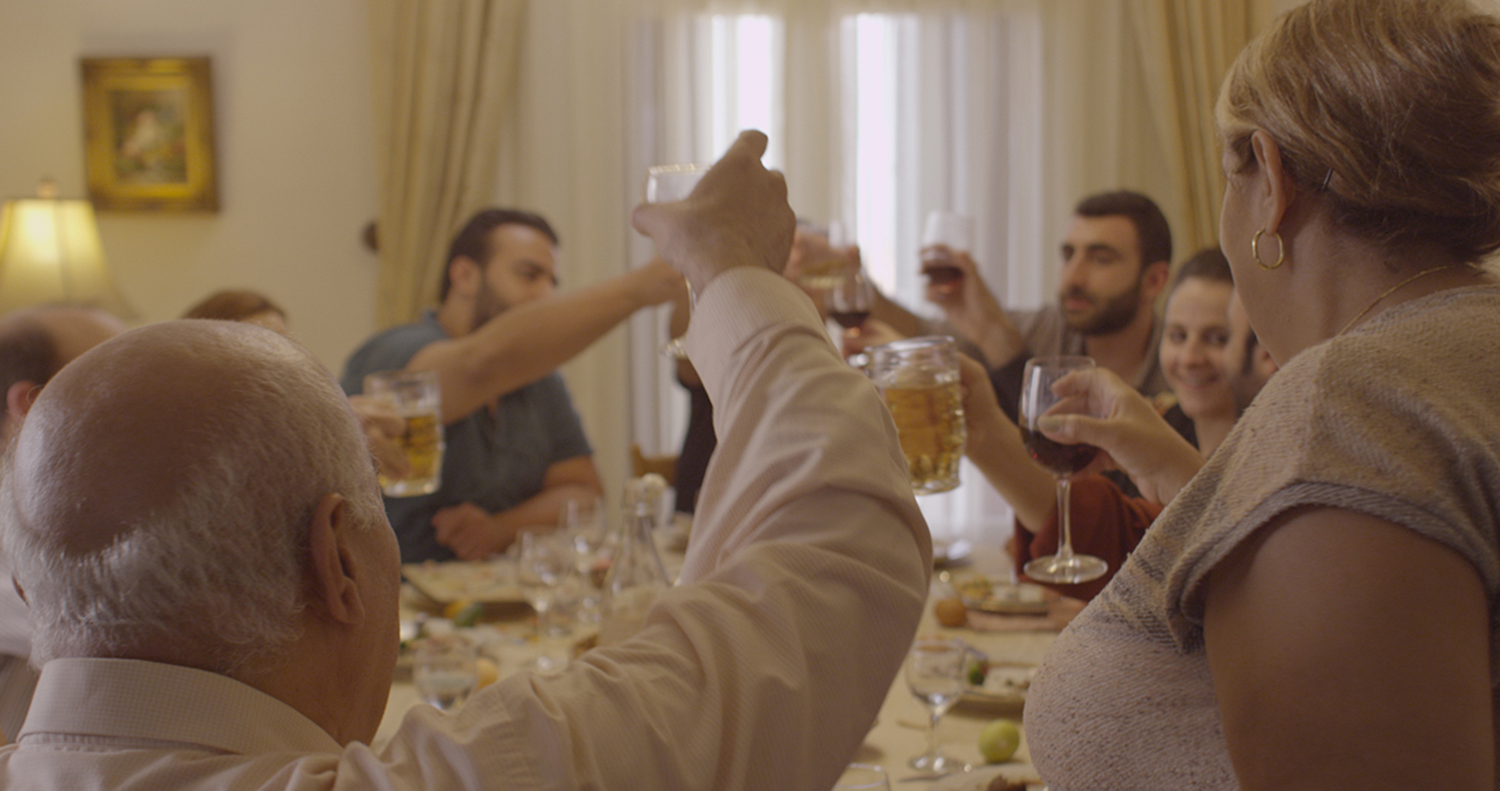
- Golden Globe Awards
Heaven Without People (Lebanon)
It was supposed to be a happy and long overdue family gathering to celebrate Easter Sunday in a Beirut apartment. But the reunion soon takes a turn for the worse in Heaven Without People, the feature film debut of Lebanese theater director Lucian Bourjeily. There is no power when Serge and his girlfriend Leila arrive late at his parents’ for the luncheon where all the relatives are already gathered. Generators have been turned off by the authorities but the atmosphere inside is already well charged as plates of fattoush and kibe keep piling up. And things quickly start to unravel when Josephine, the matriarch of this Christian family, suddenly realizes that her cash savings of $12,000 have disappeared. Did she misplace it? Or did someone steal it? And if so, who did it? While the merriment continues, the guests noisily go on arguing about politics, the state of the country’s economy, religion, corruption, personal aspirations.Masks fall, true feelings are finally expressed, unfiltered. Long repressed resentments assorted lies and deep-seated secrets are exposed and revealed, causing an escalating chaos spiraling out of control that will culminate by every member of the household showing their true nature in an almost Bunuelesque and farcical fashion. “It’s a slice of the daily life of a Lebanese family, brutally honest and impulsive,” Bourjeily explains. “I wanted to tell a story that depicts the anatomical dysfunction in today’s Lebanon where we have been stuck in a socio-political vicious circle for decades.”“And for the audience to reflect on the roots of fanaticism that are directly affecting our lives and livelihoods and leading the country into periodic flare-ups of violence. I wanted to understand this better and dig into the structural malfunction by looking inside the entity that is widely considered to be the nucleus of any society, which is the family.”From the start, Bourjeily opted to use non-professional actors to reflect the eclectic array of characters that would feel most authentic and credible. “It was a long and tedious casting process,” he remembers. “Because we first got 2,500 applicants that we had to narrow down to 250 until we selected the 13 that make up the family.” And even though the scenes feel spontaneous and improvised, all was carefully scripted and rehearsed extensively. As were the long uninterrupted takes, giving the impression, the director says, that “the main character is the camera.”Filming took place at Boujeily’s family home in the mountains close to Beirut where he grew up. “As a filmmaker, I consider myself a puppeteer,” he says. “The most important thing is to be honest with oneself and with life. I don’t like to moralize or be didactic but to be a tool in the hand of the audience to let them choose whichever road they want to understand the story. Because if your work doesn’t connect with others, it dies.” A Fulbright scholarship recipient, 38-year-old Lucien Bourjeily studied in Los Angeles from 2010 to 2013. His only previous film was the 22-minute short Ariel in Beirut. In his home country, where his immersive stage work is often seen as provocative, he is a controversial figure. Encouraging both dialogue and freedom of expression with a mix of social commentary and political satire are the staples of his artistic approach. Several of his theatrical productions have been banned. In 2014, the highly publicized confiscation of his passport by the authorities caused an uproar, and a year later he was beaten by security forces during the protests in Beirut.No wonder, Heaven Without People was on the radar of the Lebanese Censorship Bureau.And to allow his film to be released in Lebanon, Bourjeily had to reluctantly agree to a compromise and make requested cuts. “What can I do, he said recently during his visit to the Los Angeles Film Festival. I was given the choice between censorship and having it banned altogether. It was very frustrating. Censorship constrains art and limits its impact as much as it does with free thought. But it is part of how they operate in Lebanon and it is very bad. When the film was in theaters, I could not talk about it which I can do freely now.”It is a risk that he is willing to take. “I strongly believe that doing nothing and standing aside is even more dangerous.”

